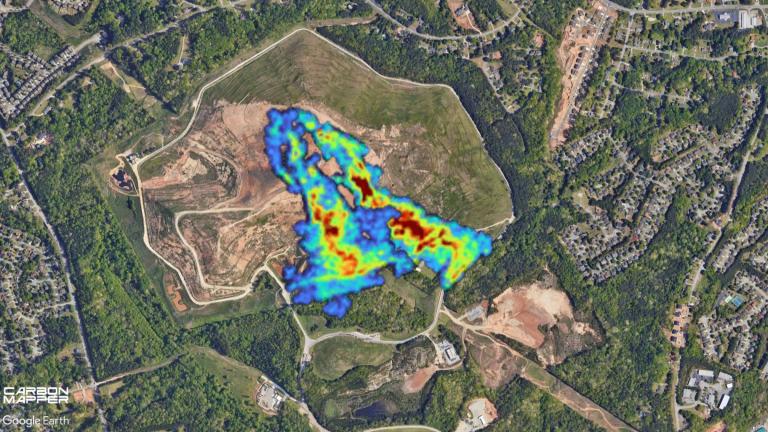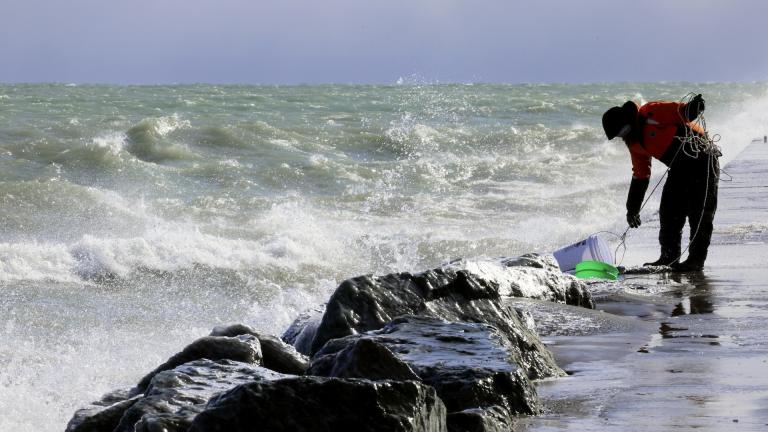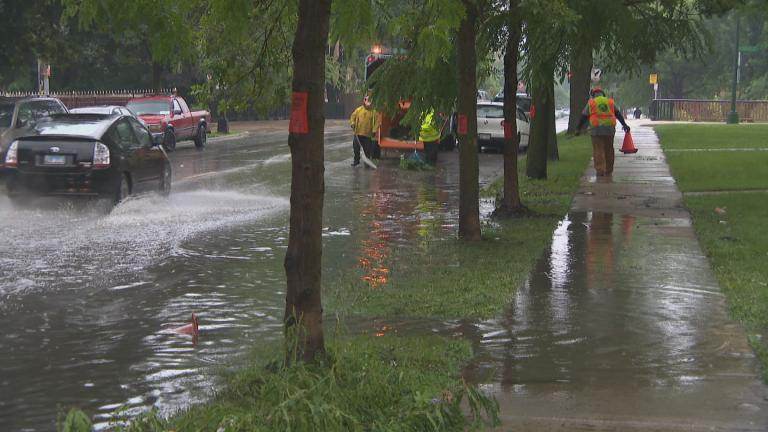New research from climate scientists suggests that the West Antarctic Ice Sheet could melt far more quickly than was previously thought. The ice sheet is larger than Mexico and if it does disintegrate the resulting rapid sea level rise could threaten coastal cities around the world.
While Chicago doesn’t have to worry about being inundated by the sea, climate change is having an impact here too. According to the U.S. Forest Service, one in five native trees in the Chicago area are under threat as climate zones change. And that is likely just the start.
Douglas MacAyeal, a professor in the Department of Geophysical Sciences at the University of Chicago, has spent 40 years studying Antarctica and the impact of melting ice on our climate.
He says that the impact of the climate warming on Antarctica is not immediately obvious because the most dramatic changes are taking place beneath the ice. His fear is that as the floating ice shelves that are connected to the land melt away, they will allow the Antarctic ice sheet – which rests on bedrock – to flow more readily into the ocean and thereby trigger rapid sea level rise.
MacAyeal notes that when the ice sheets that once covered Canada, Sweden and Norway started melting some 20,000 years ago sea levels rose some 450 feet, sometimes as fast as 10 feet per century. That’s the speed of change he believes we are going to have to deal with.
“Even if we do a good job (of combatting climate change), I think the entire world will have to be dealing with rising ocean levels on the order of 5-10 feet per century,” he said.
Seth Darling, a local scientist and author of the book “How to Change Minds About Our Changing Climate,” points out that while it is the developed world that is most responsible for human-induced climate change, the developing world will pay the highest price.
“The sad truth about climate change is that it is the developed world which is really primarily responsible for putting us in the situation that we are in today and we are, however, going to feel less of the impacts than the developing world who are really not responsible for the problem,” he said.
“Southeast Asia for example is going to be absolutely hammered by the impacts of climate change and they carry very little blame for the amount of carbon that currently exists in the atmosphere. But the ramifications will hit everybody. There are no winners from climate change.”
But Darling is at pains to point out that the situation is not hopeless.
“We have today technologies on the shelf ready to go – technologies that can make a huge difference,” said Darling. “The choices are clear and we have at our hands the technologies to get us most of the way there already.”
MacAyeal and Darling join host Phil Ponce to discuss climate change.
Related stories:
 Study: Chicago’s Forests Threatened by Climate Change
Study: Chicago’s Forests Threatened by Climate Change
May 12: A first-of-its-kind study shows that forests in Chicago face significant threats from climate change, with native trees especially vulnerable to increases in temperature, precipitation and other changes.
 Chicago Launches Website on Climate Change
Chicago Launches Website on Climate Change
May 8: An announcement last month from the EPA prompts Chicago to launch its own website dedicated to the science behind climate change.
 Northwestern Expert Devises Method for Quantifying Impact of Global Warming
Northwestern Expert Devises Method for Quantifying Impact of Global Warming
April 26: A study co-authored by Northwestern University climate expert Daniel Horton outlines a framework for measuring the impact of global warming on extreme weather events.








